Paris 2024: Australian swimmers Ariane Titmus and Zac Stubblety-Cook join debate about athletes’ fair reward from $7 billion Olympic pie
Should IOC money should filter down to the athletes who win medals? Australian swim stars Ariarne Titmus and Zac Stubblety-Cook have weighed into the debate, with the Olympic breaststroke champion in Tokyo taking the ‘purist’ approach.
Swimming
Don't miss out on the headlines from Swimming. Followed categories will be added to My News.
Self-confessed “purist” Zac Stubblety-Cook believes there is enough opportunity for swimmers to benefit from prizemoney at major events without attaching a cash prize to Olympic gold.
Stubblety-Cook, who was Australia’s only male individual gold medallist at the Tokyo Games, could benefit if World Aquatics followed the lead of World Athletics, which has announced it will award gold medallists a $50,000 gold medal bonus in Paris.
Ariarne Titmus said earlier this week the time was coming for the Olympic movement to share its riches with athletes but like Stubblety-Cook she hadn’t taken up the sport for money.
But Stubblety-Cook, who showed he was on track for Paris selection with a comeback win in the 200m breaststroke at the Australian Open championships on the Gold Coast on Thursday, believes the prestige of an Olympic title should be reward enough for athletes.
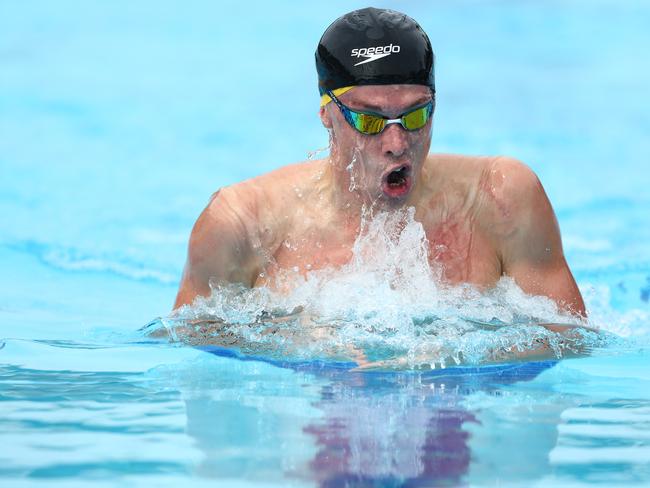
“There’s enough opportunity for us at the moment,” he said.
“I think that’s a World Aquatics decision. For me personally, I think the Olympic Games is, in its essence, a bit of a purist (event).
“We have our world championships and World Cups for those opportunities.
“(World Athletics) have Diamond League as well but I think that’s a World Aquatics decision for sure.”
Like Stubblety-Cook, world champion Sam Short believes the prestige of Olympic gold is reward enough.
“Growing up I’ve kind of always just wanted the gold medal to be honest, an Olympic gold medal’s priceless – you’re an Olympic champion forever if you get it,” Short said.
“There’s other opportunities racing internationally to get prize money.
“I’m not doing it for the prize money. I’m just doing it to become immortalised in sport.”
Under the current International Olympic Committee structure, all Olympic sports are paid from the enormous IOC revenue pool with the money dispersed as each world governing body sees fit.
While World Athletics announced its gold medal bonus scheme, World Aquatics – the body that oversees swimming, diving, water polo and artistic swimming – has not followed suit, keeping the Olympics a money-free zone.
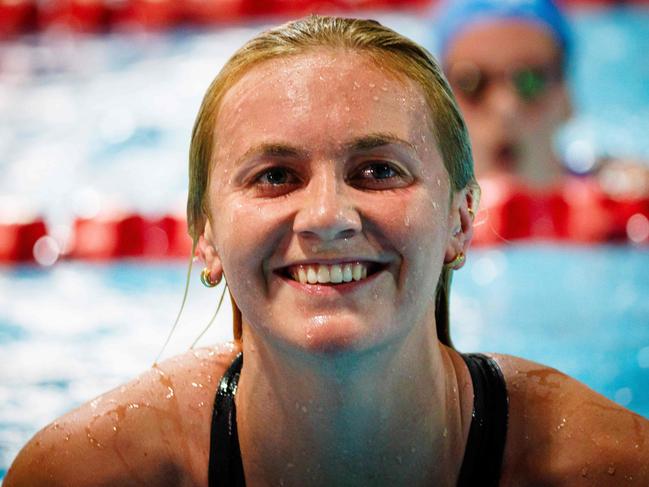
Titmus calls for stars to earn fair slice of $7b Olympic bounty
– Todd Balym
Ariarne Titmus believes the time is quickly coming for the Olympic movement to financially reward the stars of the show out of the $US7 billion business of the Games.
Titmus admitted messages quickly swept through swimming circles after World Athletics introduced a $50,000 gold medal prize money incentive for the Paris Olympic Games, with silver and bronze medallists to also be paid at the 2028 Los Angeles Games.
Under the current International Olympic Committee structure, all Olympic sports are paid from the enormous IOC revenue pool with the money dispersed however the sport themselves see fit.
World Aquatics have opted to offer financial incentives at their own world titles and World Cup events, but there is no financial reward on offer for swimmers in Paris aside from the funding programs offered by their own Olympic Committees or swimming organisations.
The IOC is a non-profit organisation but the charter enables the business to set aside 10 per cent of revenue for ongoing operational costs and the development of sport each Olympic cycle – which is why the last annual report showed a cash reserves totalling more than $US800m and $US3.2bn in equity.
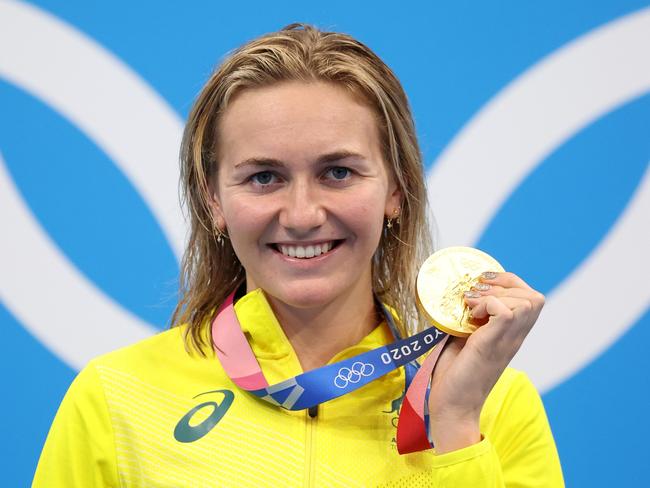
That enormous stockpile has many beginning to wonder why can’t the IOC itself afford to offer prizemoney directly to the biggest stars of the show each Olympics who perform miracles at the Games.
Titmus stopped short of calling upon the IOC or World Aquatics to match the athletics program, but agreed any move to match the incentive would be welcomed particularly as the majority of elite Olympians operate with minimal income in a mostly amateur sport.
“Yeah I think so,” Titmus said when asked if IOC money should filter down to the athletes who win medals.
“We’re the ones putting the show on for the world, we’re the ones working our butt off.
“I’m not going to be here complaining about it because that was never why I started swimming.
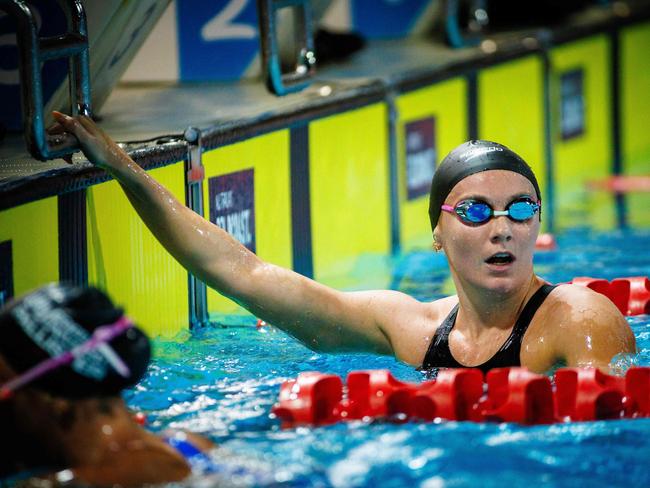
“If I was to become an athlete for money, I have chosen the wrong sport.
“But I think all of us are not doing that for that reason, but if some things were to change I would never say never.”
Titmus said it was passion and pride that was driving her to defend her Olympic titles in Paris.
“Look winning prizemoney is wonderful but at the end of the day I don’t go to the Olympics to win money,” she said.
“I am racing at the Olympic Games for the pure passion and love of my sport. Pride representing our country. Winning money is a bonus but it’s not the reason we do it.
“If World Aquatics came on board and said they would that would be great, it’s hard in amateur sport trying to make a living when you’re not under contract and professionally paid.
“But I don’t think people are going to the Olympic Games to, you know, get big cash.”
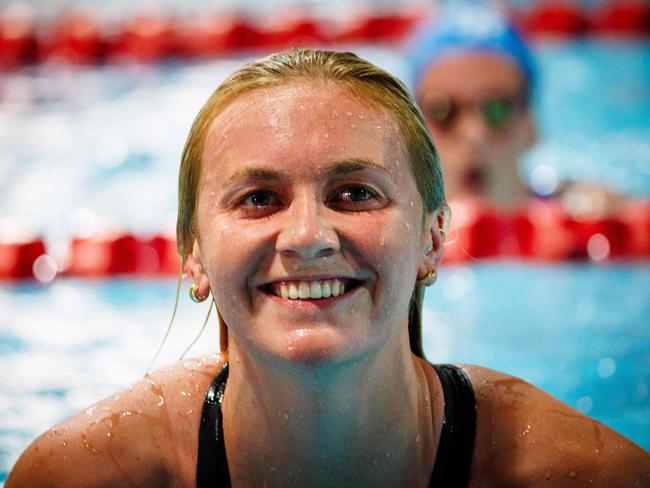
Titmus will be back in the water for the Australian Open championships on Friday for the 400m freestyle knowing the world will be watching to see what early season marker she can put on the board.
As Olympic champion in both the 200m and 400m freestyle she has a target on her back but is comfortable in her role as a star of the Australian team.
“I feel like I know what I’m doing a lot more going into this, I have a wiser head on my shoulders,” she said.
“I know what to expect but at the same time I think there are a lot more eyes on me.
“I think people outside of swimming are expecting me to win now which is a whole different thing to manage.
“But I think I’m pretty good at just letting that fly over my head and worry about myself. I think the expectations I have for myself are the same.
“So it doesn’t really add any greater pressure, I just know there are more people willing and wanting me to do well.”




